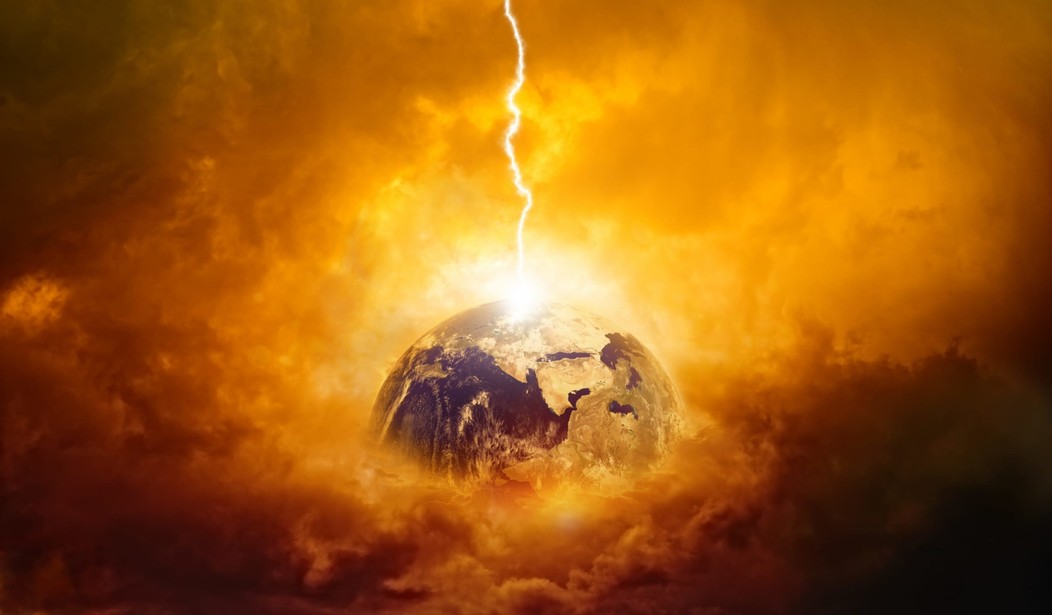According to the author of a new five-year study into Americans’ attitudes on faith and science, most Americans are open to many different “narratives” on creation, evolution, and the age of the earth. They care a lot more about whether a particular understanding of creation or evolution conflicts with the nature of God and the uniqueness of humanity.
“People are not actually strongly wedded to any particular narrative,” Elaine Ecklund, a social science professor at Rice University and author of the new book Religion vs. Science: What Religious People Actually Think, told Leith Anderson, president of the National Association of Evangelicals (NAE). “People would even say that more than one narrative could be true, and people aren’t willing to commit to any of the narratives.”
Ecklund and her co-author Christopher Scheitle, a sociology professor at West Virginia University, presented 10,421 Americans with six different options on the creation-evolution debate, and most Americans were not dogmatic in their responses.
“We think that what might be going on here is for most religious individuals, it doesn’t actually matter that much how old the earth is or some other technical detail,” Ecklund said. Rather, she suggested that “for them — and this comes out in our in-depth interviews when we talked to people face-to-face — that the proper question is whether a given narrative about the origins of the earth leaves room for there to be a role for God and for humans to have some sort of sacred status.”
“If the narrative allows for this, then people tend to be fine with other details about evolution or non-evolution,” the author concluded.
It turns out that many Christians — and Jews and Muslims — seem more focused on the role of God in creation and the special uniqueness of human beings than in any one particular explanation of origins. Interestingly, large numbers of evangelicals were willing to stomach some kind of evolution so long as it integrated these major concerns.
“The narratives that allowed for some active role for God and some sense that humans are special, evangelicals were likely then to be fine with attaching an evolutionary perspective,” Ecklund said. Many, however, still favored the young-earth creationist mindset.
Ecklund and Scheitle presented no less than six narratives:
Young-earth creationism: God created the universe, the Earth, and all of life within the past 10,000 years.
Recent human creation: God created the universe and the Earth billions of years ago; plants and animals evolved over millions of years from earlier life forms, but God intervened to create humans within the past 10,000 years.
God-guided evolution: God created the universe and the Earth billions of years ago. God started and has guided human evolution over millions of years.
Intelligent design: The universe and Earth came into being billions of years ago, and humans evolved over millions of years according to the design of an Intelligent Force.
God-initiated evolution: God created the universe and the Earth billions of year ago; but all life, including humans, evolved over millions of years from earlier life forms due to environmental pressures to adapt and without any guidance from God or an Intelligent Force.
Natural evolution: The universe and Earth came into being billions of years ago; all life, including humans, evolved over millions of years from earlier life forms due to environmental pressures to adapt; there was no God or Intelligent Force involved in either the creation or evolution of life.
Ecklund’s research did find that evangelical Protestants were the most likely of any group to be dogmatic, saying that only one narrative is “definitely true.” Only about a quarter of Americans (26.5 percent) were dogmatic on the issue. Behind evangelical Protestants (39.8 percent), atheists/agnostics/unaffiliated Americans were most dogmatic (30.6 percent), followed by Jews (21.9 percent), non-Western religions (21.5 percent), mainline Protestants (20.9 percent), and Roman Catholics (18.8 percent).
Young-earth creationism proved the favorite of more dogmatic evangelical Protestants — and mainline Protestants. A quarter of evangelical Protestants (28 percent) and about one-tenth of mainline Protestants (9 percent) said young-earth creationism was “definitely true.”
Unsurprisingly, the atheist/agnostic/unaffiliated group swung to the opposite extreme, with 27 percent saying natural evolution (with no involvement from God) was “definitely true.” The more dogmatic Jews (13.8 percent) and members of non-Western religions (12.47 percent) also favored natural evolution.
Roman Catholics who embraced one narrative as “definitely true” favored God-guided evolution, although only 6.4 percent of Catholics dogmatically supported this view.
Most Americans (73.5 percent) either said none of the origin narratives are “definitely true” (57.3 percent) or that more than one of the narratives is “definitely true” (16 percent). Evangelical Protestants were most likely to be dogmatic for one view, but they were also the most likely to say that more than one of the origin narratives is true. (Intelligent Design fits with God-guided evolution, for example.)
Perhaps the largest and most surprising result from Ecklund’s survey was the widespread support for science among religious people, particularly evangelical Christians. “I was very surprised at how science-friendly people of faith are,” she told Anderson. “Evangelical Christians, mainline Christians, Catholics, Muslims, they all love science.”
Ecklund’s book aims to dispel many myths about faith and science, showing that religious believers have a high view of science and that many scientists are religious believers.
Most religious Americans aim to integrate faith and science, she explained. Despite the popular narrative of a conflict relationship between religion and science, only “a minority of Americans” think such a conflict exists, and evangelicals were the most likely to pick that position — but only about 20 percent did so.
By contrast, about half of evangelical Protestants said there should be a collaboration between religion and science. The difficulty? Almost two-thirds (60 percent) of evangelical Christians say scientists should be open to considering miracles.
Ecklund said the over-exaggerated conflict between faith and science is a “myth,” and suggested it is still popular because “conflict sells.”
“A quick answer is that conflict sells,” she explained. “Radical collaboration doesn’t sell as well.”
Conflict may sell, but journalists and authors need to cut down on the narrative of faith as all young-earth creationism and science as all natural evolution. These two views are incompatible, but most Americans are not dogmatic about origins and most of the conflict between science and religion is overblown.









Join the conversation as a VIP Member